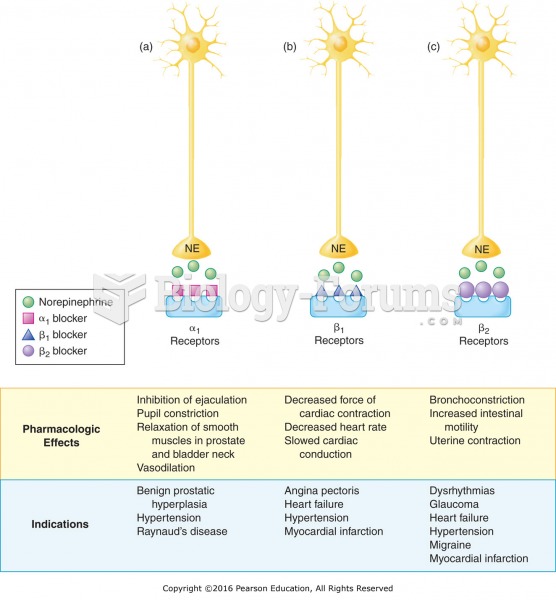|
|
|
Amphetamine poisoning can cause intravascular coagulation, circulatory collapse, rhabdomyolysis, ischemic colitis, acute psychosis, hyperthermia, respiratory distress syndrome, and pericarditis.
Lower drug doses for elderly patients should be used first, with titrations of the dose as tolerated to prevent unwanted drug-related pharmacodynamic effects.
In 2006, a generic antinausea drug named ondansetron was approved. It is used to stop nausea and vomiting associated with surgery, chemotherapy, and radiation therapy.
Bisphosphonates were first developed in the nineteenth century. They were first investigated for use in disorders of bone metabolism in the 1960s. They are now used clinically for the treatment of osteoporosis, Paget's disease, bone metastasis, multiple myeloma, and other conditions that feature bone fragility.
Blood is approximately twice as thick as water because of the cells and other components found in it.
 Testing the effects of long-term fertilizing on inter-actions between mycorrhizal fungi and plants o
Testing the effects of long-term fertilizing on inter-actions between mycorrhizal fungi and plants o
 Organizational Effects of Testosterone Around the time of birth, testosterone masculinizes and defem
Organizational Effects of Testosterone Around the time of birth, testosterone masculinizes and defem
 Pharmacologic effects and indications of adrenergic antagonists: (a) blockade of alpha1 receptors; ...
Pharmacologic effects and indications of adrenergic antagonists: (a) blockade of alpha1 receptors; ...




